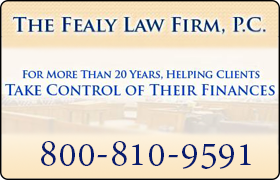 South Houston Bankruptcy & Debt Lawyers, Texas
South Houston Bankruptcy & Debt Lawyers, Texas
Sponsored Law Firm
-
 x
x

Click For More Info:
-
The Fealy Law Firm, P.C.
1235 North Loop West Suite 1005 Houston, TX 77008 » view mapBankruptcy, Judgments, & Foreclosures Houtson Bankruptcy Lawyers
Helping clients take control of their finances, for more that years. Board Certified in Consumer Bankruptcy by the Texas Board of Legal Specialization.
800-810-9591  Vicky Fealy Houston, TX
Vicky Fealy Houston, TX Attorney At Law - Texas, 1991
University of Houston Law Center, J.D.
 Frequently Asked Questions
Frequently Asked QuestionsBankruptcy Frequently Asked Questions
 Contact UsEmail or Call 24/7
Contact UsEmail or Call 24/7Timing is often critical and you really need to seek advice early.
Sponsored Lawyers
1-10 of 11 matches
Natural Resources, Medical Malpractice, Insurance, Government, Consumer Bankruptcy
Jeff Todd has a broad range of legal experience and has practiced law in numerous jurisdictions and settings. Upon graduating from law school, he practiced reinsurance law at Chadbourne & Park in Washington, D.C. He subsequently relocated to Atlanta, Georgia and initially served as in-house counsel to Delta Air Lines, focusing primarily on marketing and mergers. In search of acquiring more courtroom experience, he joined a high volume workers' compensation firm in Decatur, Georgia, where he successfully represented hundreds of injured workers throughout Georgia. Jeff ultimately returned to Texas and was most recently associated with Greer, Herz & Adams of Galveston, where from 2003-2007, he practiced with some of the most highly skilled and regarded attorneys in Galveston County. Jeff started his own firm in 2018 to better serve his clients and has assembled a top notch team to achieve the best results for his clients. Given the broad success of his new firm, Jeff has expanded offices in Galveston and Austin to better serve clients throughout the state and country.
(more)




 Vicky Fealy Houston, TX
Vicky Fealy Houston, TX  Frequently Asked Questions
Frequently Asked Questions Contact UsEmail or Call 24/7
Contact UsEmail or Call 24/7

